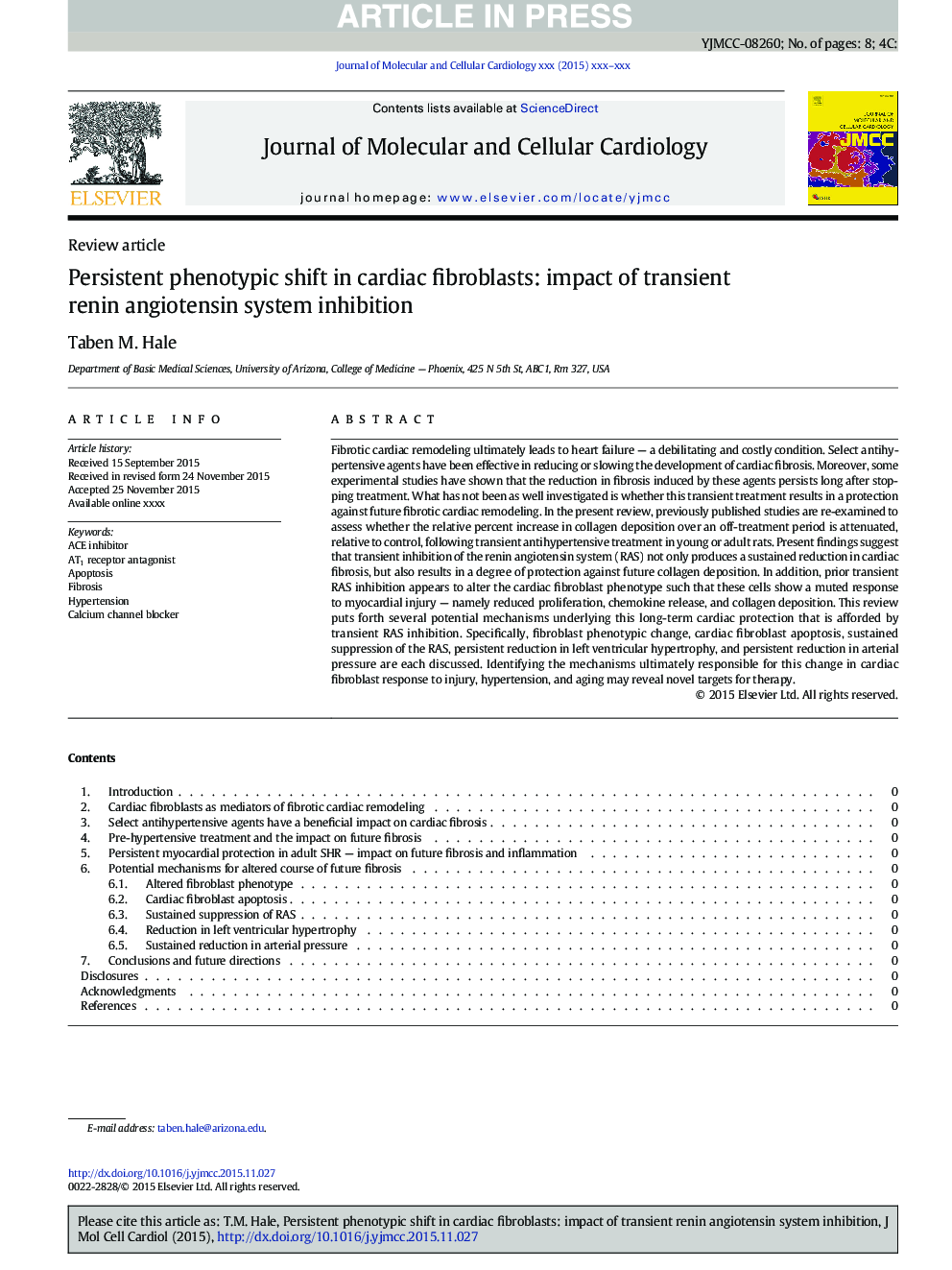| Article ID | Journal | Published Year | Pages | File Type |
|---|---|---|---|---|
| 8473875 | Journal of Molecular and Cellular Cardiology | 2016 | 8 Pages |
Abstract
Fibrotic cardiac remodeling ultimately leads to heart failure - a debilitating and costly condition. Select antihypertensive agents have been effective in reducing or slowing the development of cardiac fibrosis. Moreover, some experimental studies have shown that the reduction in fibrosis induced by these agents persists long after stopping treatment. What has not been as well investigated is whether this transient treatment results in a protection against future fibrotic cardiac remodeling. In the present review, previously published studies are re-examined to assess whether the relative percent increase in collagen deposition over an off-treatment period is attenuated, relative to control, following transient antihypertensive treatment in young or adult rats. Present findings suggest that transient inhibition of the renin angiotensin system (RAS) not only produces a sustained reduction in cardiac fibrosis, but also results in a degree of protection against future collagen deposition. In addition, prior transient RAS inhibition appears to alter the cardiac fibroblast phenotype such that these cells show a muted response to myocardial injury - namely reduced proliferation, chemokine release, and collagen deposition. This review puts forth several potential mechanisms underlying this long-term cardiac protection that is afforded by transient RAS inhibition. Specifically, fibroblast phenotypic change, cardiac fibroblast apoptosis, sustained suppression of the RAS, persistent reduction in left ventricular hypertrophy, and persistent reduction in arterial pressure are each discussed. Identifying the mechanisms ultimately responsible for this change in cardiac fibroblast response to injury, hypertension, and aging may reveal novel targets for therapy.
Related Topics
Life Sciences
Biochemistry, Genetics and Molecular Biology
Cell Biology
Authors
Taben M. Hale,
